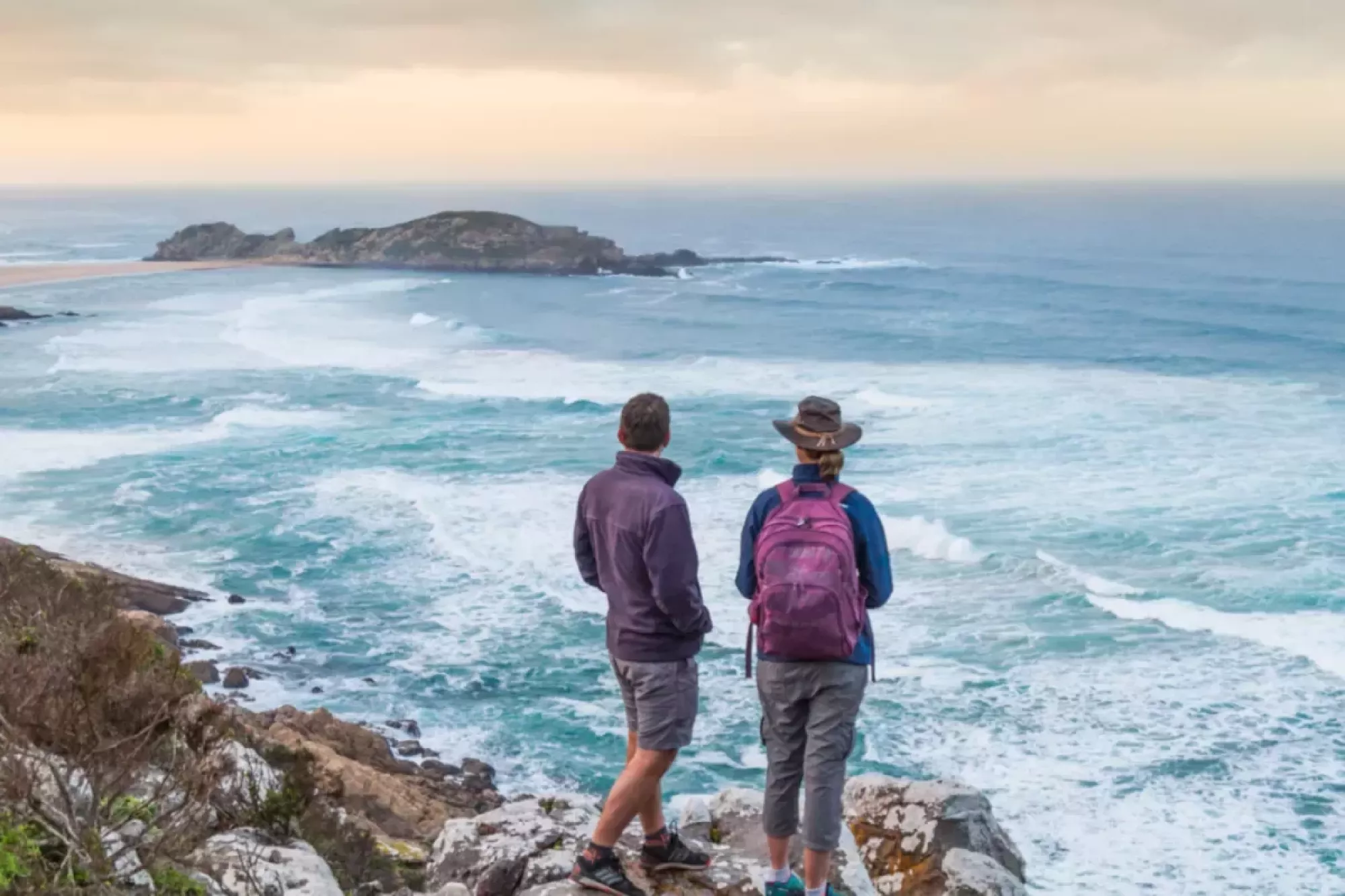
Marine Month 2020 - creating opportunities for young people through conservation
International Marine Month is celebrated every October worldwide. In South Africa, the month is used to create awareness of our marine and coastal environment and the benefits that our oceans bring to our nation. This year’s theme, “Innovation for a Sustainable Ocean”, encourages a fresh approach to the conservation of this important resource. The Hermanus Internship Programme is an innovative project that not only creates practical learning opportunities for youth, but ensures that our marine resources are better protected.

In 2015, CapeNature and partners embarked on a career-based job creation concept. As part of the Kogelberg Biosphere Reserve Marine Working Group, specific marine-oriented careers were identified and creative study opportunities were sourced or developed to focus on these. In many instances, study opportunities for the young people living in the Overstrand Municipality are limited to tertiary institutions “on the other side of the mountains” with the associated prohibitive costs.
Nelson Mandela University (NMU) has moved towards providing modular courses and specifically developed off-campus lecture options. The NMU Centre for Law developed the FISHFORCE short learning course which is accredited and thus contributes credits towards a Diploma. This was identified as an opportunity to provide a platform for local youth to enter the field of compliance monitoring, enforcement and conservation. The added incentive was that the lectures could be provided where the students are located.
As plans were being developed to create this opportunity, the Hermanus Varsity Trust (HVT) came into being with very similar goals, e.g. bringing accredited education opportunities to the youth in the Overstrand Municipality. The HVT was launched in March 2019 and the FISHFORCE course in partnership with NMU and CapeNature was one of the short courses offered. According to Pierre de Villiers, Senior Manager: Marine and Coasts Operations, “While the course has a legal and enforcement orientated background, the work integrated learning opportunities in partnership with CapeNature provides the learner with practical coastal ecosystem monitoring experience. The package will not only prepare the learner for further studies in the field, but will also provide the learner with practical experience in the field of conservation.”
The first FISHFORCE course was offered by HVT in 2020 and 31 students were enrolled. “It has been wonderful to witness how the students have improved academically and grown in confidence”, says Dr Kirsten Neke, Programme Coordinator: Environment at the Hermanus Varsity Trust.
After the students completed the five short-term learning modules, a field learning programme was developed, where the coastal range from Vermont to De Kelders (Walker Bay) was divided into sectors to accommodate five teams from five communities. CapeNature staff provided in-field mentorship and guided the students on how to complete record observations and species and locality identification. Students also learned how prevalent species contribute to and sustain diverse and healthy eco-systems. Zuziphiwe Jonase (27), one of the students shared his excitement, “The internship is great and I enjoy everything about it. I have learnt so many things ranging from birds to fish, even their names. I am getting to know nature and how important it is in our lives.”
Dr Razeena Omar, CEO of CapeNature says, “The entity believes in innovative partnerships that provide for job creation opportunities for the youth and thus provide them with a sense of dignity. Projects such as this one shows our commitment to youth development and is a highlight of our Marine month celebrations, this year.”
Persons that are interested in Marine Law Enforcement and would like to enquire about this programme can email kirsten@hermanusvarsity.co.za for more information.




